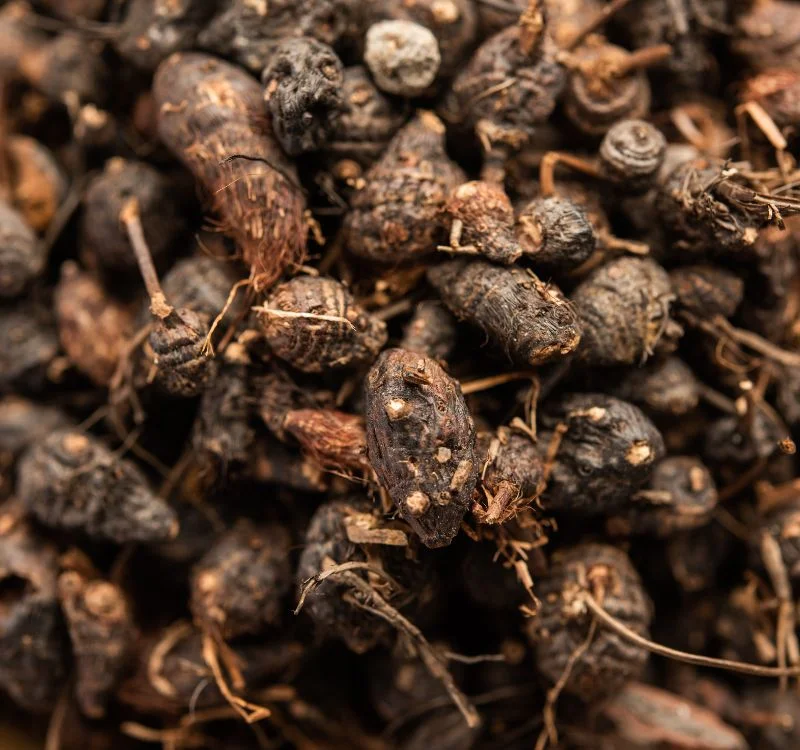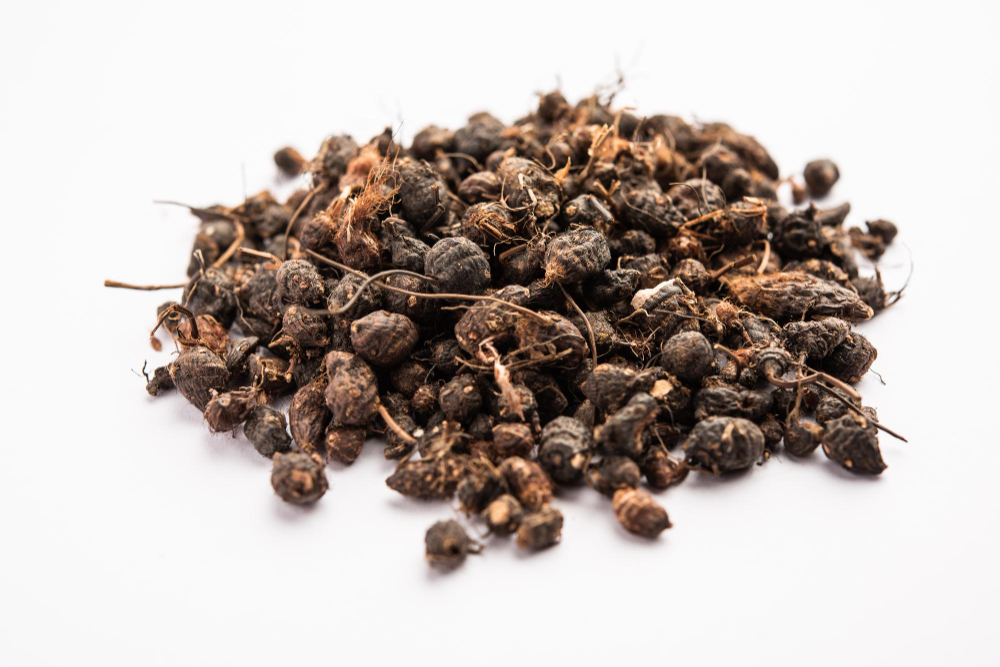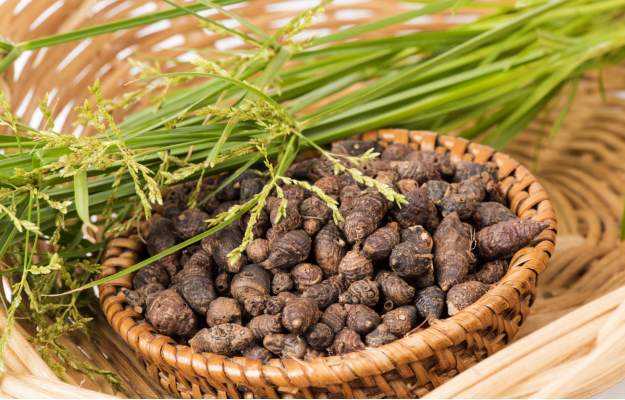INTRODUCTION:
Nagar Motha (Cyperus rotundus), commonly known as nut grass, is a perennial herb belonging to the family Cyperaceae. It is widely distributed throughout tropical and subtropical regions of the world and is well known in Ayurveda and other traditional systems of medicine for its remarkable therapeutic properties. The plant grows abundantly in moist soils and cultivated fields, often considered a weed, but its underground rhizomes possess great medicinal value.

Sanskrit: Musta, Mustaka
Hindi: Nagar Motha, Motha
English: Nut Grass, Purple Nutsedge
Bengali: Motha, Mutha
Marathi: Teki, Motha
Gujarati: Motha, Nagarmotha
Tamil: Korai Kizhangu, Koraikilangu
Telugu: Tunga Mustalu, Nela Tunga
Kannada: Tunge Gadde, Kora Gadde
Malayalam: Muthanga, Korakizhangu
Punjabi: Motha
Urdu: ناگر موتھا
Arabic: Saad, Saad-e-Kufi
Persian: Su’ad
Nepali: Motha, Mothe Ghas
HEALTH BENEFITS:

Aids digestion:
It acts as a digestive stimulant, helping to improve appetite and nutrient absorption.
Relieves bloating and gas:
The herb has carminative and antispasmodic properties that reduce flatulence, bloating, and abdominal pain.
Treats skin infections:
The anti-inflammatory and antimicrobial properties of nagarmotha are beneficial for skin conditions like acne, eczema, and itching.
Promotes hair growth:
It is used in hair oils to help stimulate hair follicles, strengthen hair roots, and reduce premature hair graying and hair loss.
Relieves joint pain:
Its anti-inflammatory properties can provide relief from pain and inflammation associated with arthritis and sore muscles.
Soothes skin inflammation:
When applied topically, a paste of nagarmotha powder can reduce swelling from inflammatory skin conditions.
Boosts metabolism:
The herb can help improve metabolism and reduce the accumulation of fat.
Reduces water retention:
It acts as a diuretic, helping the body flush out excess water and toxins.
Supports lactation:
For new mothers, it can help improve the production and quality of breast milk.
Eases menstrual issues:
It can help regulate irregular periods and alleviate menstrual cramps.
SIDE EFFECTS:

Constipation:
Due to its drying properties, overuse of nagarmotha can aggravate the body’s Vata dosha (a bodily humor in Ayurvedic medicine) and lead to constipation.
Excessive dryness:
For individuals with a sensitive digestive system or Vata imbalance, high doses can cause dryness of the mucous membranes and other related issues.
Mild acidity or heartburn:
Taking too much nagarmotha can lead to increased acidity or cause heartburn.
Pregnancy:
High doses of nagarmotha may stimulate uterine contractions and should be avoided by pregnant women unless specifically advised by a healthcare provider.
Breastfeeding:
The effects on breastfeeding women and infants have not been well-studied. It is recommended to consult a doctor before use.
HOW TO USE:
For Digestion:
Take ½ teaspoon of Nagar Motha powder with warm water after meals.
It helps relieve gas, acidity, and indigestion.

For Fever:
Boil 1 teaspoon of Nagar Motha powder in a cup of water.
Strain and drink twice a day.
It helps reduce body heat and fever naturally.
For Skin Problems:
Mix Nagar Motha powder with rose water or aloe vera gel to make a paste.
Apply it on acne or pimples; wash after 15–20 minutes.
It helps clear skin and reduce inflammation.
For Hair Care:
Mix Nagar Motha powder with coconut oil, warm slightly, and apply to the scalp.
Leave it for 30 minutes before washing.
It strengthens hair roots and reduces dandruff.
For Menstrual Problems:
Drink Nagar Motha tea made by boiling 1 teaspoon of the powder in a cup of water.
It helps reduce cramps and regulate the menstrual cycle.
For Detox and Weight Loss:
Take Nagar Motha water (boil 1 teaspoon powder in 2 cups of water, reduce to half, and strain).
Drink it once daily in the morning on an empty stomach.It helps cleanse the body and improve metabolism.




